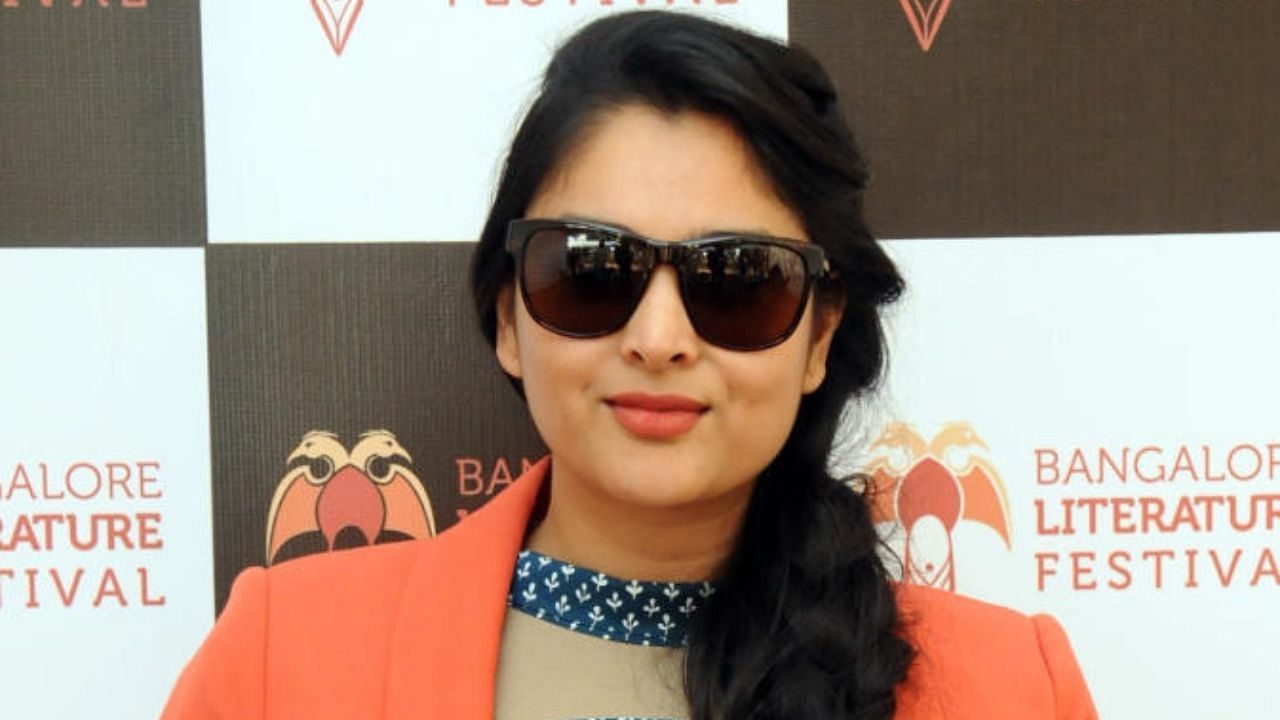Ramya, the ‘Sandalwood Queen’ of Kannada industry, quit acting for politics in 2014. On Wednesday, she announced her return to cinema. She will not only be back facing the camera but also be producing two films under her banner AppleBox Studios.
The actor, who rose up the ranks with several blockbusters ('Abhi', 'Excuse Me', 'Jothe Jotheyali'), became a sough after heroine in Kannada. So much so that filmmaker began writing unique roles for her ('Amruthadhare', 'Sidlingu' and 'Sanju Weds Geetha').
Ramya now aims to make an impact in the OTT space and produce more films for women. She spoke to Showtime about the second phase of her career. Excerpts:
From how long have you been thinking of a comeback to films?
In 2019, I decided to take a break for a year as I had worked non-stop. I wanted to take sometime off for myself and then figure out what I wanted to do. But then, the pandemic happened and the break got extended. During that period, everybody was going through an existential crisis and so was I. That’s when I asked myself what exactly did I want to do. Even after I quit films in 2014, I kept receiving offers, even films as big as ‘KGF’ and ‘Rathnan Prapancha’. I was busy with politics then but I felt this (acting) is something that comes naturally me and this is what I enjoyed back then. Later, when I returned to social media, a lot of people wanted to know when I am back. So, I realised this was the right time to make a return.
When you quit films in 2014, was it a tough call?
I quit at my peak. I didn’t think about what would happen next, I was very young to look too far ahead. Politics happened all of a sudden. I contested and 10 days later, I got elected as an MP. I then lost my father, and 10 months later, there was another election which I lost. Later on, I handled social media for Congress. So, I was going with the flow, and didn’t quite pause and think if I should do this or that.
What has your stint with politics taught you?
I enjoyed my time in politics. I think if I have had a shift in perspective in the way I view the world, and in how I engage with people, be it in a relationship or work, it is because of politics. It has taught me so much. I have zero regrets. Today, if I am proud of the way I have changed, the credits goes to my stint as a politician. You learn a lot in politics as you are engaging with people who are less privileged or much more privileged than you. You are in a position where you can help or also receive it.
As a newly-turned producer, what’s your understanding of Kannada cinema?
Even before I announced that I want to turn a producer, there were talks that I am ready for films again. So, I got many scripts but most of them were formulaic and done to death. I also noticed that nobody was writing for women. Heroines are part of films but they don’t get important roles. I understand Kannada is a very niche market, and the industry is very hero-based. They say that stars have to woo the audience, and that’s when you get maximum number of screens. But how did a ‘Sanju Weds Geetha’ do well? People came in large numbers and I won a lot of awards. It’s all about content and how well you present it. I don’t agree that casting a female lead is a tricky decision. ‘Tithi’ or a ‘Garuda Gamana Vrishabha Vahana’ didn’t have superstars but they were great films.
You carved a niche for yourself in the first phase. But why haven’t we seen more female superstars in Kannada?
Lot of actors are very talented. But I think a lot goes into being a sought-after actor. There is the factor of enigma, packaging, and how well you articulate yourself. You can’t really pin-point and say there is that one thing that makes an actor a lady superstar. But it’s high time the producers considered women as bankable actors. We must have films on women that will generate revenue. Only then can we write more scripts for women and convince producers to bankroll them. This shift must happen soon or else, you will see more actors from here venturing out to other industries.
What can you tell us about your two upcoming films?
I get excited when scripts challenge me. I have to be enthused to be on sets and be happy while shooting. I was blown away by a Kannada film recently and the director narrated me a script. I was thrilled to give my nod. The OTT boom has changed many things in cinema. Both my films are striving for a new form of storytelling. For instance, in the Oscar-winning ‘The Father’, Anthony Hopkins plays a patient suffering from dementia. Usually, in such stories, the narration is from the point of view of the
person in the receiving end. But this film gets inside the mind of the patient and tells us a story. That’s how you break a stereotypical approach.
